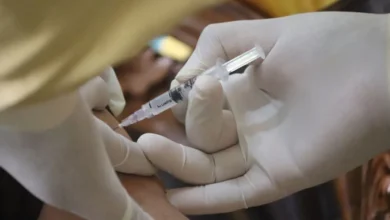Rise of Smartphones and Social Media Linked to Adolescent Mental Health Crisis

Psychologist Dr. Jean Twenge argues that the adolescent mental health crisis was not solely triggered by the pandemic but had been escalating since 2012. Her analysis of federally funded data conducted by the University of Michigan reveals a steady increase in depressive symptoms among young adults over the past decades. Factors such as the rise of smartphones and the influence of social media are believed to have played a significant role in this concerning trend. Dr. Twenge emphasizes the need for safety regulations on social media platforms and encourages parents to prioritize healthy socialization and sleep for their children.
Prevalence of Depressive Symptoms:
Dr. Twenge’s examination of data from over 50,000 young adults spanning from the 1990s onwards highlights a consistent rise in depressive symptoms among 8th, 10th, and 12th graders. Feelings of inadequacy, a lack of purpose, and a diminished enjoyment of life have become increasingly prevalent over the years. Contrary to popular belief, the analysis demonstrates that the mental health crisis had already begun prior to the COVID-19 pandemic, with the turning point occurring around 2012.
The Impact of Technology and Social Media:
Dr. Twenge delves into the potential reasons behind the escalation of depressive symptoms, focusing on the advent of smartphones and the rise of social media. The year 2012 coincided with a widespread adoption of smartphones and a growing obsession with maintaining a social media presence. The introduction of forward-facing cameras on iPhones further fueled the importance placed on appearance. Dr. Twenge argues that these technological advancements have led to societal shifts, emphasizing individualism and self-focus over collective well-being.
Social Media’s Role in Adolescent Mental Health:
The harmful effects of social media on mental health, particularly among young girls, have been widely documented. U.S. Surgeon General Dr. Vivek Murthy has expressed concerns about social media’s impact on teen brain development and the lack of safety measures in place. Dr. Murthy’s advisory calls for age-appropriate health and safety standards on technology platforms and heightened data privacy protection for children and adolescents. Acknowledging the absence of sufficient evidence regarding the safety of social media for teenagers, he describes it as an unintentional long-term experiment.
Addressing the Crisis and Looking Ahead:
While the future remains uncertain, the alarming rate at which depressive symptoms have been increasing among youth necessitates immediate action. Dr. Twenge advocates for safety regulations on social media platforms, including the implementation of a minimum age requirement and age verification processes. Encouraging parents to recognize the benefits of combating loneliness among their children and prioritizing adequate sleep are also crucial steps to counteract the negative effects of social media. Dr. Twenge emphasizes the need for a fundamental shift in how parents perceive and facilitate healthy socialization among teenagers.
Conclusion:
The adolescent mental health crisis predates the COVID-19 pandemic, with depressive symptoms among young adults steadily rising since 2012. Driven by the widespread adoption of smartphones and the influence of social media, this crisis demands urgent attention. Establishing safety regulations on social media platforms, promoting healthy socialization, and prioritizing sleep are vital steps toward mitigating the harmful effects of technology. By acknowledging and addressing these challenges, we can strive to foster a healthier environment for the mental well-being of our youth.



